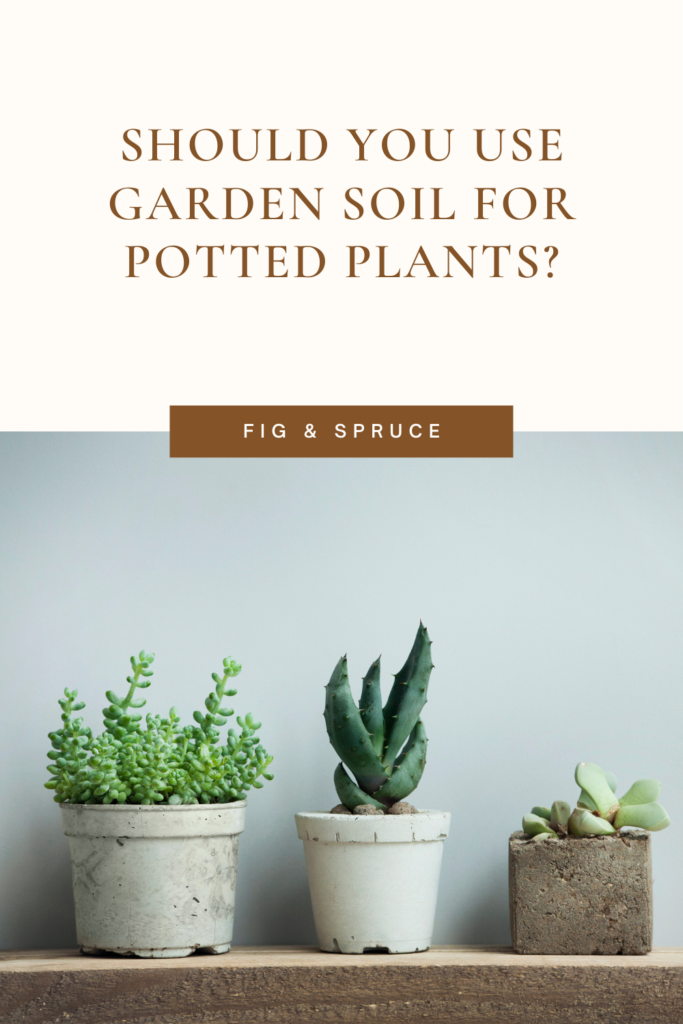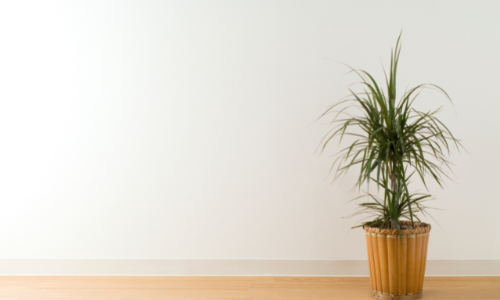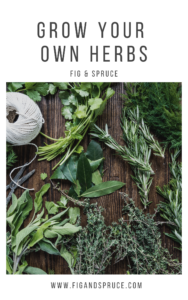If you’ve ever had a container garden before, you’ve probably had the questions of can you use garden soil for potted plants?
It can be very tempting to use either soil from your raised bed gardens or just soil from the top layer of a ground garden. After all – that dirt is free and ready for you to use in your pots!
However, we generally advise against using soil directly from your garden for a few reasons.
There’s also garden soil that is available for purchase
Today we’re exploring this in more depth and talking about why you may want to avoid using garden soil for your potted plants.
Table of Contents
Potting Soil Vs Garden Soil
The first topic we want to cover is the difference between potting soil and gardening soil. To beginner gardeners, they might seem very similar.
In fact, you can purchase gardening soil in bags at stores like Home Depot just as you would potting soil.
Garden soil can also refer to soil found in a raised bed garden or dirt from your ground.
Potting soil, on the other hand, is a specially formulated soil with multiple mediums such as perlite, coco coir, and more mixed together to make it lighter and less compact than garden soil.
Can you use Garden Soil for Potted Plants?
Using either definition of garden soil, they are both very different from potting soil. For the most part should garden soil and potting soil should not be used interchangeably.
Gardening Soil is Dense and Compact
Gardening soil is much more dense and compacted, and lacks the nutrients that are typically included with potting soil.
The density of gardening soil means that you won’t get the proper drainage if you use gardening soil in a pot. When you’re planting an in ground garden water can drain off into the earth.
Container gardening, on the other hand, can be different. Even with drainage holes in your pot you can still risk water accumulating and the roots getting soggy. This can often lead to root rot.
Additionally, with compact garden soil there likely won’t be enough aeration for the roots of your plant. Aeration is important for roots to thrive and grow.
Both of these factors result in an increased chance of root rot, as well as other pests and potential diseases.
Garden Soil Lacks Nutrients
The lack of nutrients or fertilizer means that your soil will not have the right balance of nutrients for your potted plants. You can help mitigate this risk by adding fertilizer and testing the pH of the soil.
However unless you’re familiar with how to properly adjust both fertilizer and pH levels, its better to use potting soil to avoid this risk all together.
Garden Soil can Contain Pests
Aside from the first two factors we mentioned, there’s also the potential when you use garden soil for potted plants that you bring along pests that can wreak havoc on your plants.
This factor is more likely to be an issue if you’re pulling soil from the ground rather than buying bagged garden soil at your local store.
Its hard to tell just by sampling parts of the soil if it contains pests that could be harmful to your plants. Often these bugs are very small or still in egg or larvae form and not easily observable.
Selecting the Right Potting Soil
So, at this point we’ve covered why you don’t want to use garden soil for potted plants.
However – that leaves the question of what potting soil should I use?
When evaluating a potting soil, you want to consider the ingredients in it.
A good potting soil should have a mix of organic material, fertilizer, and medium that will provide drainage.
Fertilizer
Fertilizer is important specifically for container gardening because container gardens are limited to the nutrients available in your pot.
In a ground garden, plants can pull nutrients from the earth. There’s also earthworms and other natural factors that can provide nutrients to the plant.
Container plants don’t have this option, so its important that a fertilizer is either mixed into the soil or you add it manually.
Drainage
Drainage is also critical for container plants as we mentioned earlier. Mediums that provide drainage will help prevent your plant’s roots from staying too damp, which results in the dreaded root rot that many container gardeners face.
The most common materials to look for that provide drainage for plants include coco coir or coco peat, and perlite.
Top Options for Potting Mixes
For a full comparison on potting soil for container gardening, check out this article. However, if you need to make a quick decision, our top pick is the Happy Frog Potting Mix from Amazon.



